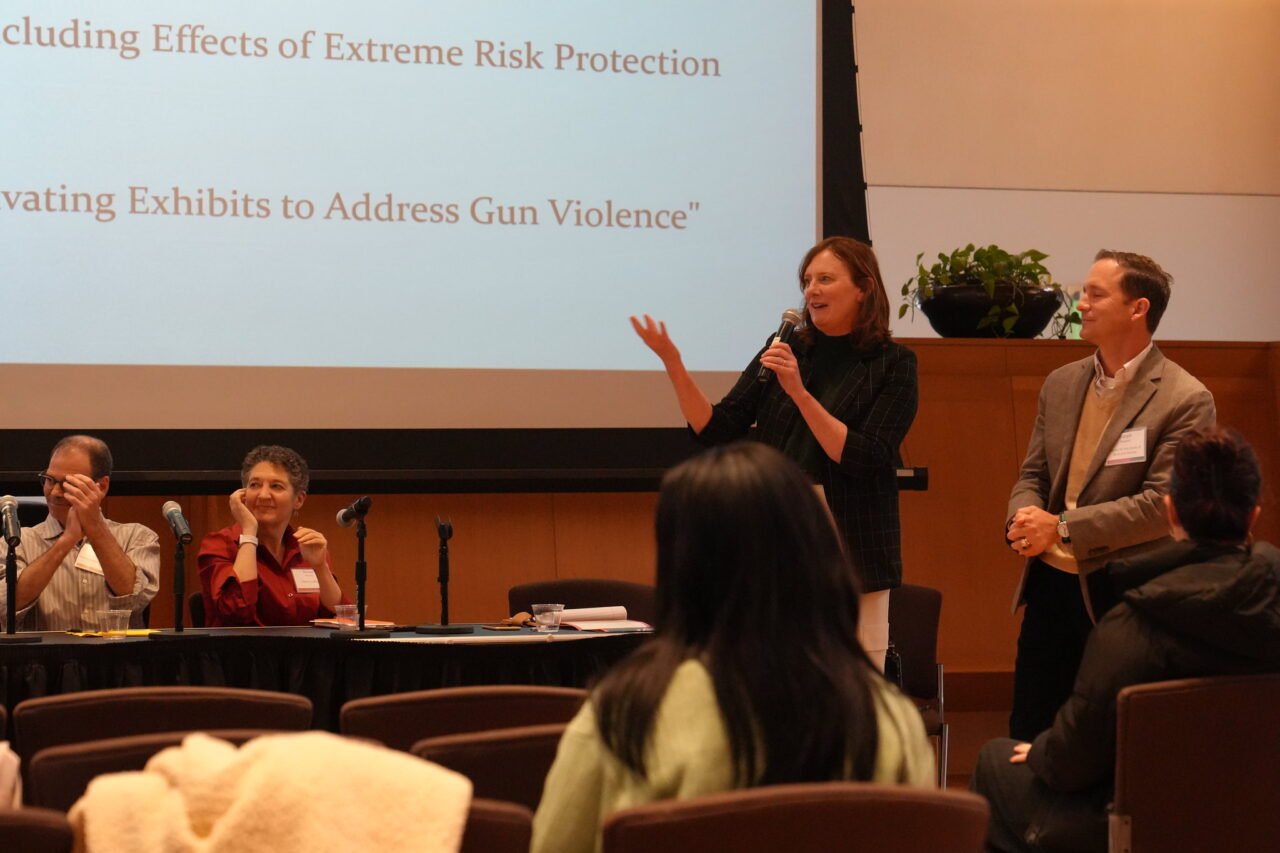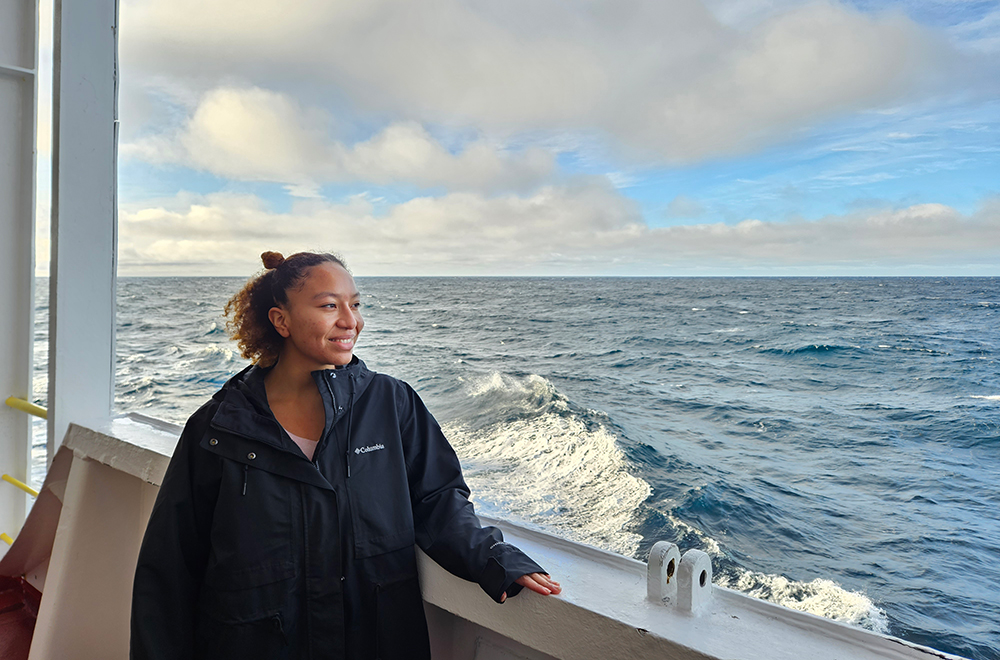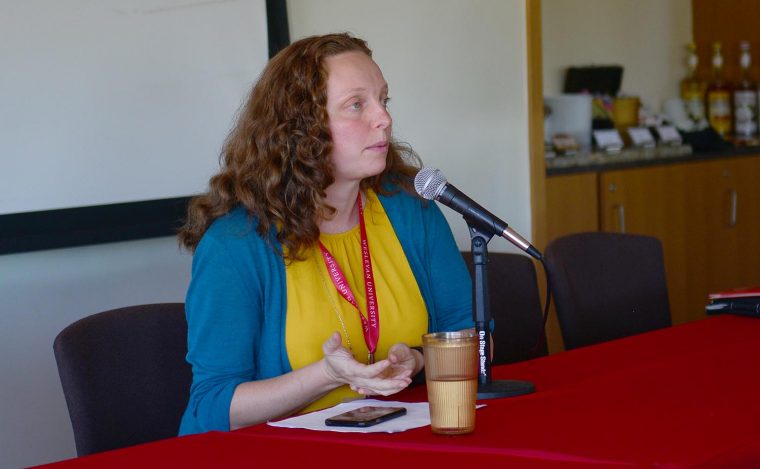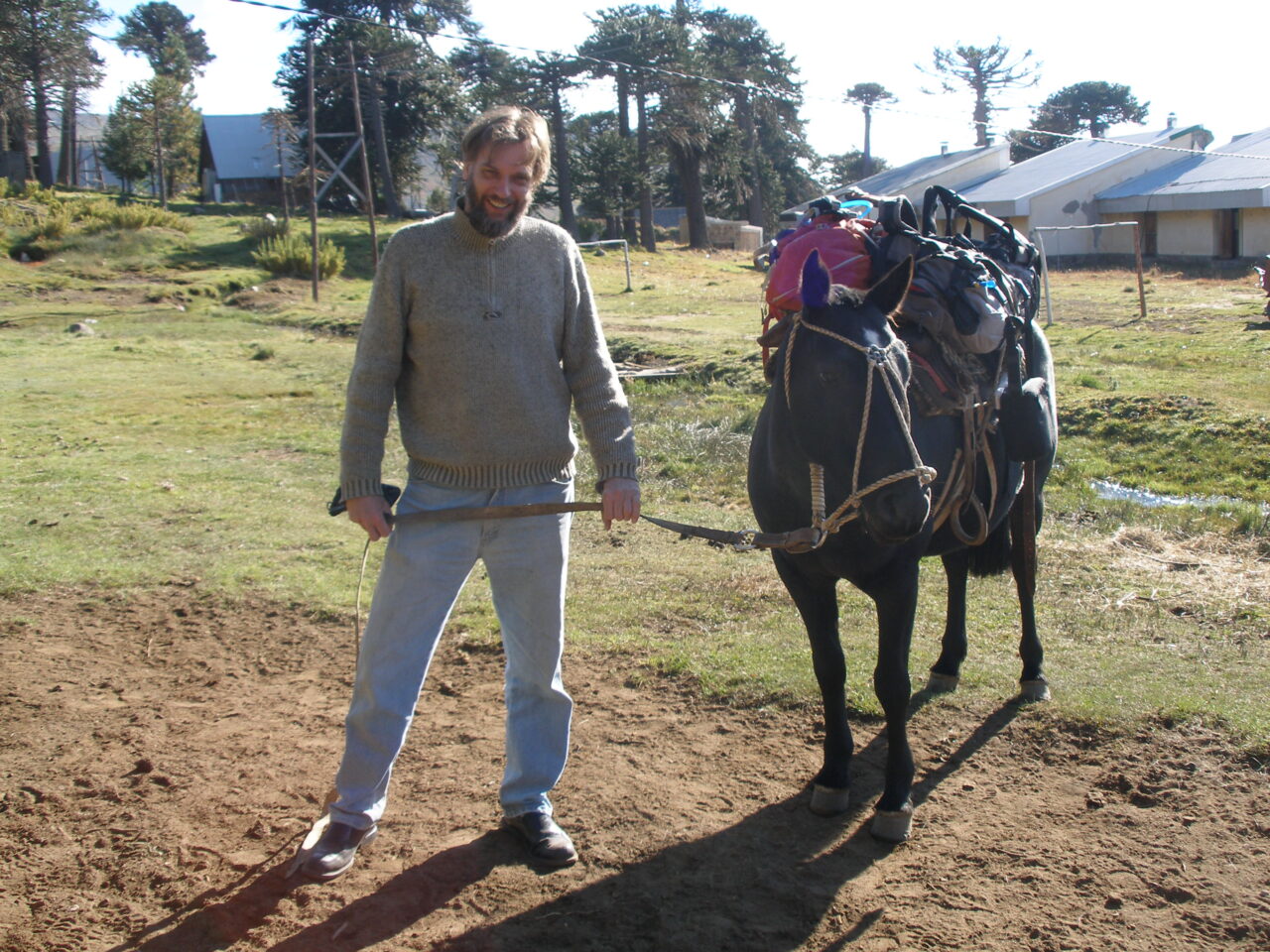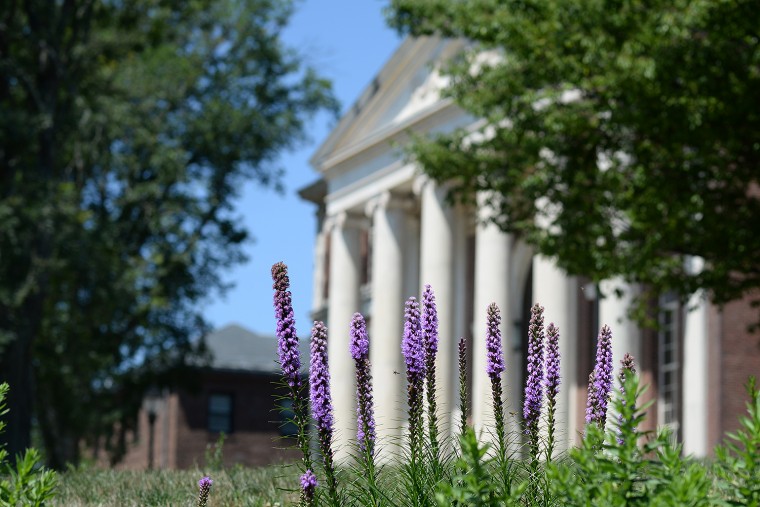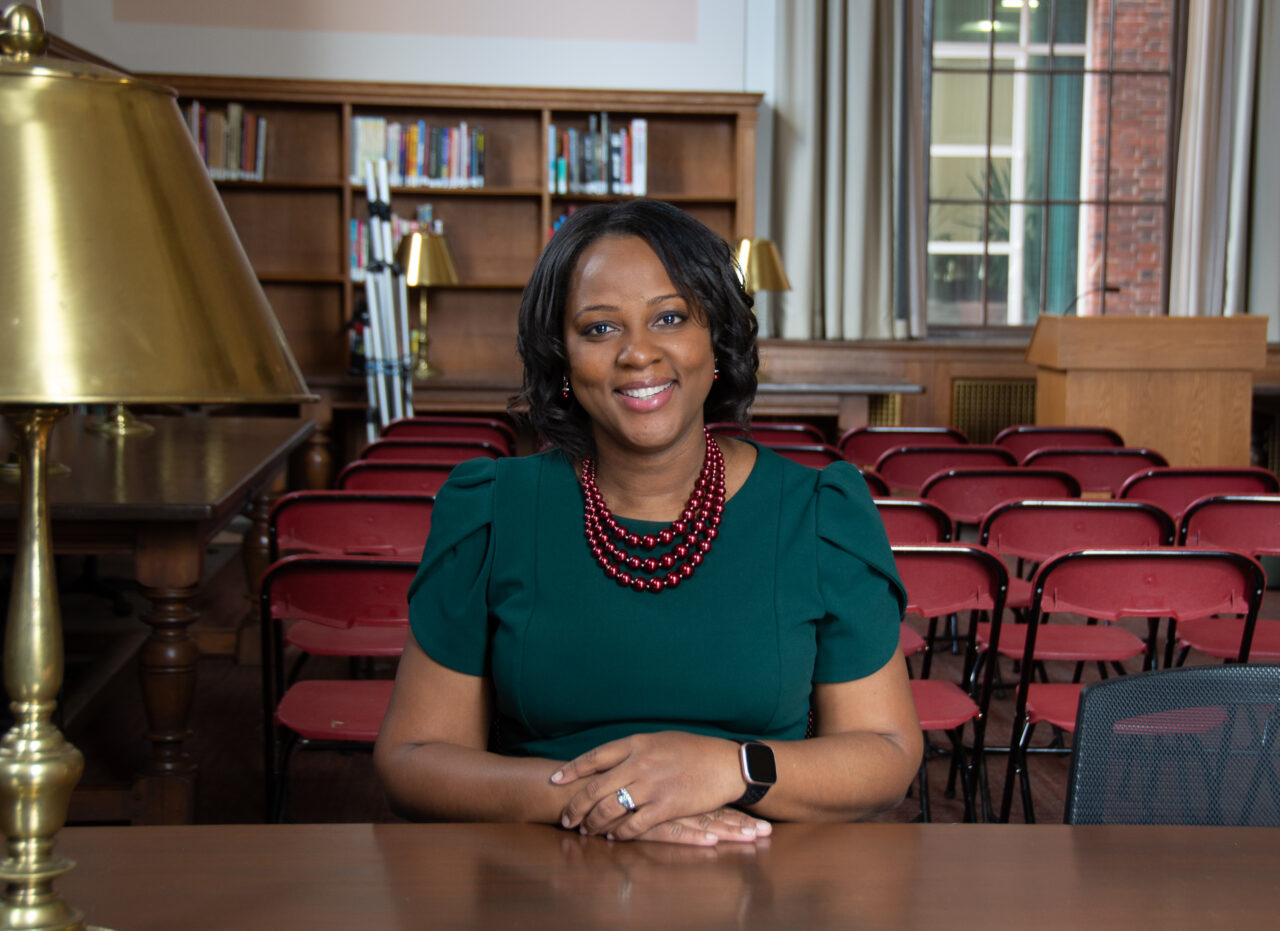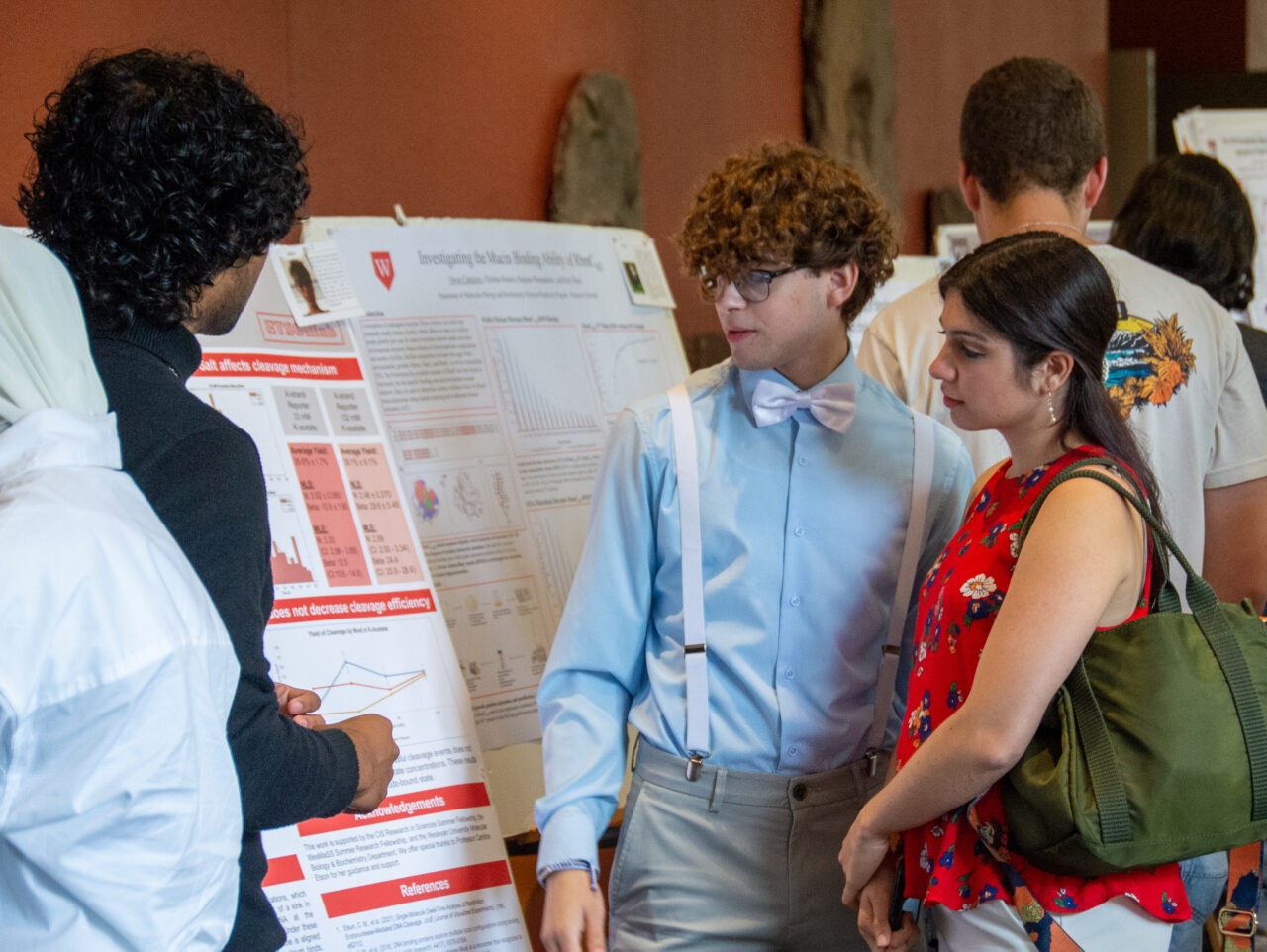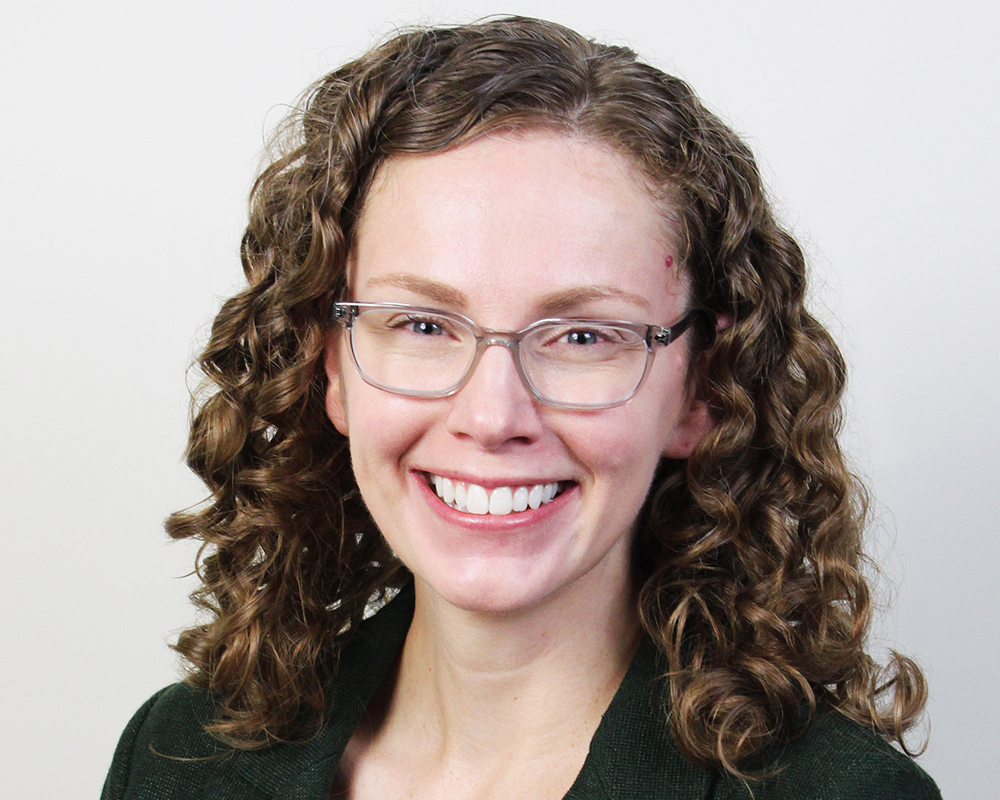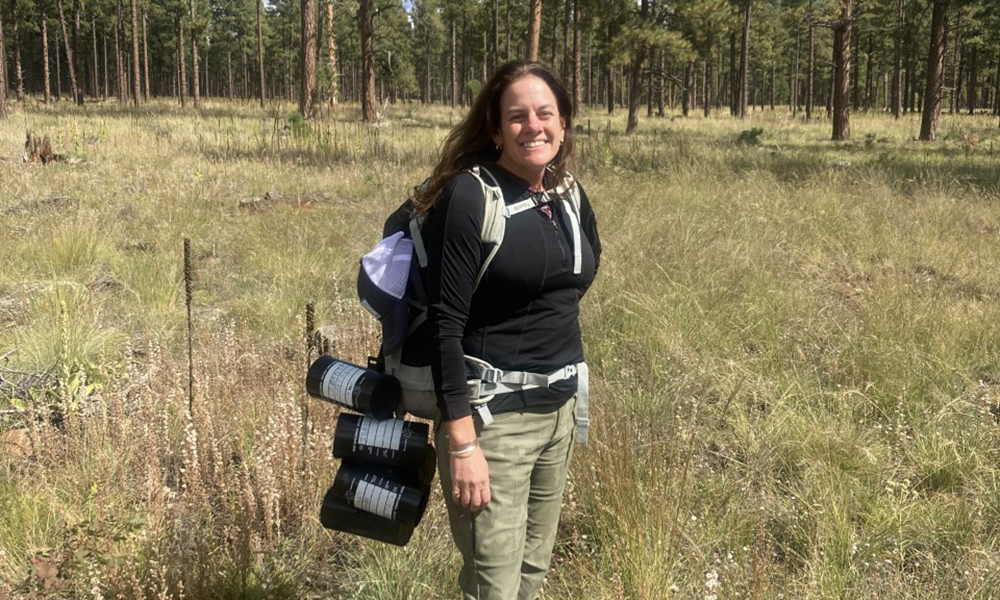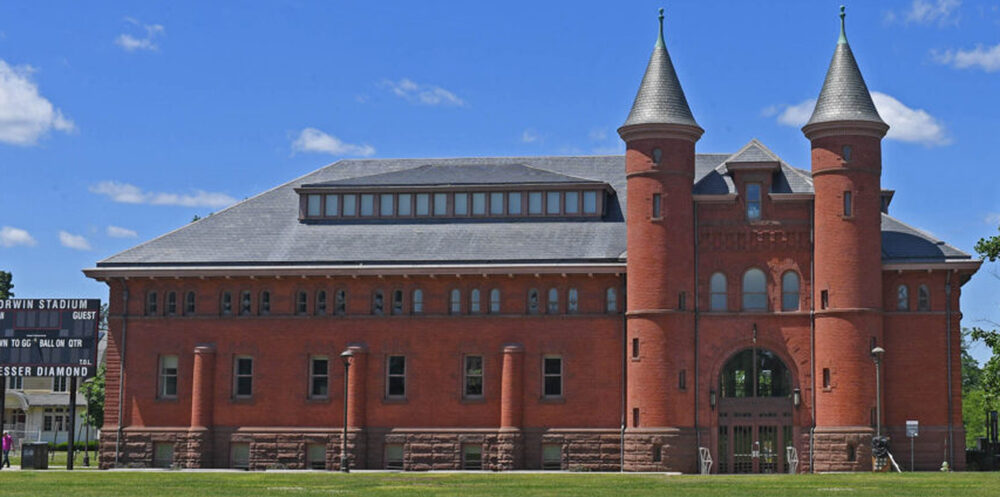The Center for the Study of Guns and Society at Wesleyan brought together historians, museum curators, legal scholars, journalists, filmmakers, and other subject-matter experts for the Center’s second-annual flagship conference, Current Perspectives on the History of Guns and Society, which took place October 13-14. Through panel discussions, a film screening, and other sessions, the conference shed fresh light on the ever-expanding role of history in America’s contemporary gun discourse. [See photos from the event.] “How have the uses and meanings of guns changed over time?” asked Jennifer Tucker, professor of history and the Center’s founding director. “How does historical knowledge…
A team of scientists from different corners of the field, all with unique backgrounds and countries they call home, tucked onto a vessel in the middle of the Northwest Atlantic for two months. It could be the set up to a research-themed superhero movie, or the dream scenario for an early-career professor. For Raquel Bryant, Assistant Professor of Earth and Environmental Sciences, getting this experience had been a bucket list item for the past decade. Bryant once had a research mentor who had a similar experience who told lively stories of the life at sea with some of the world’s…
More than half of people who die by suicide visited a primary care physician in the month prior to their death, according to research. That statistic indicates a unique opportunity to help identify people wresting with suicidal ideation and perhaps save lives. Assistant Professor of Psychology Alexis M. May, director of the Risk, Prevention, and Intervention (RPI) Lab, has recently published research that shows a common depression screening questionnaire given at regular primary care visits is more effective in predicting future suicidal behavior over the short term than specific questions about suicidal thoughts themselves. “It suggests to me that while…
There are 600 million people globally and 80 million people in the United States living along coastal waters, and these people are endangered by sea level rise, resulting from climate change, according to Harold T. Stearns Professor of Earth Science, Emeritus, Johan Varekamp. Global sea level is expected to rise between 10 to 12 inches by 2050, potentially as much as three to seven feet by 2100 if future carbon emissions into the atmosphere are not reduced, according to a National Ocean Service study published in 2022. Coastal flooding will become more common and more severe, and storm surge heights…
Wesleyan University will be participating in a research project to explore the potential—and pitfalls--of generative artificial intelligence as a teaching and research tool. Wesleyan joins 19 other universities, including Carnegie Mellon University, Princeton University, University of Chicago, University of Connecticut, Stony Brook University, Temple University, Bryant University, Duke University, Concordia University, and Yale University on the two-year research project led by Ithaka S+R, a not-for-profit organization that helps the academic community evaluate and use digital technologies. “Together the partners in the Making AI Generative for Higher Education will assess the immediate and emerging AI applications most likely to impact teaching,…
You might expect that a pregnant person at the height of the COVID-19 pandemic would’ve rested easily being fully compliant with public health measures aimed at keeping them safe. Not so, according to a new study by Assistant Professor of Psychology Royette Dubar published in Sleep Health: Journal of the National Sleep Foundation. Dubar and her colleagues looked at perceived current and anticipated postpartum sleep duration and quality among a nationally representative sample of pregnant people. Dubar believes that the quality of sleep a person experiences can be a strong indicator of their mental health. “Findings from the present study…
On the surface, the annual poster session held in Exley Science Center looked like an average scientific poster presentation. A couple hundred students lined up side-by-side, standing anxiously next to their tripod-hoisted poster boards waiting for passersby to ask them about their colorful charts and graphs. For the attendees, it could be their chance to learn about something new. For each presenter, the poster was the culmination of their curiosities, a spotlight on all their hours spent tucked under the lab lights or sifting through ocean sediment samples. “I love coming together as a community on this day,” Seth Redfield,…
From completing life-saving surgeries, to performing heart-gripping music, to fearlessly swimming the English Channel, the possession of paired appendages (arms and legs) is critical to human achievement. However, paired appendages are not unique to humans. Scientists have long known that human limbs evolved from the paired fins found in fishes, but where the first paired fins came from remains one of the great mysteries in evolutionary biology. Visiting Assistant Professor of Biology Amanda Cass was a co-author of a large, multi-institutional study published in the journal Nature investigating how paired appendages evolved in early vertebrate animals. The study, spearheaded by…
Two promising young scientists at Wesleyan, Aaron Berson ’24 and Jessica Luu ’24, were chosen for the distinguished Barry Goldwater Scholarship, given annually to hundreds of college sophomores and juniors across the nation pursuing research in the natural sciences, mathematics, and engineering. “Because of their degree of involvement in research, many Wesleyan undergraduates are—if their career plans align with the award—great candidates for the Barry Goldwater Scholarship,” said Erica Kowsz, Assistant Director for Fellowships at the Fries Center for Global Studies. “A real advantage of this scholarship is that it gives students a chance to learn how to write a…
There are many common threads among Helen Poulos’ 2023 publications—exploring how the world heals itself from climate change, noting how fire can be a cleansing and rejuvenating tool in the environment, and predicting which plants will thrive in the Anthropocene. “What I am really trying to understand is how climate change and wildfire is changing our landscapes. Because of fuel buildup in forests from decades of federal fire suppression and the hotter and dryer conditions caused by climate change we are seeing all of these big wildfire events across the West in recent years,” Poulos said. Another important commonality is…
Students gathered behind Exley Science Center on May 10 to watch The Big Drop—the end of semester dropping of fruit and various items from the roof of the building. The Wesleyan Mathematics and Science Scholars (WesMaSS) and the Free Radicals have hosted The Big Drop since Spring 2016 to mark the last day of classes with a bang. They recreated Galileo's famous experiment where he dropped balls of different sizes from the Leaning Tower of Pisa in 1589. The Free Radicals also demonstrated a series of experiments and pyrotechnical displays.
For Matthew Garrett, associate professor of English, Meredith Hughes, associate professor of astronomy, and Tushar Irani, associate professor of philosophy and Letters—recipients of the 2023 Binswanger Prizes for Excellence in Teaching—the voters make the award. Recipients are chosen each spring by a committee composed of faculty and members of the Alumni Association Executive Committee based upon strong recommendations from a mix of alumni of the last 10 graduating classes, current upperclassmen, and graduate students. “It's meaningful to me because the recognition comes from the students and people who have been in my classes over the last 10 years, those are…


